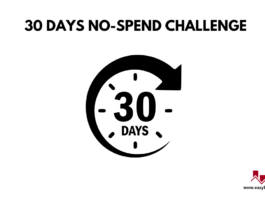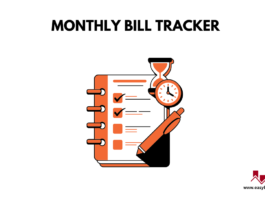The year 2025 might bring uncertainty, with economic challenges possibly on the way. Whether it is inflation, unemployment, or a slowdown in growth, recessions can create roughness in both personal and national finances. However, while a recession is unavoidable at times, But if you are prepare for it, can make all the difference in maintaining financial stability.
This post will walk you through key strategies to recession-proof your finances and ensure that you can tackle tough times without major financial distress. By building a strong financial foundation, cutting unnecessary expenses, and making strategic investments, you will be able to safeguard your financial future, no matter what the economy throws at you.
What is “recession proof” your finances?
Recession proof your finances is about preparing for tough economic times, reducing your extra spending and ensuring you can maintain your lifestyle despite of economic uncertainties. It involves strategically adjusting your budgeting, saving, and investing habits to maintain your financial life.
While no one can predict exactly when a recession will happen, being financially prepared allows you to take proactive steps to secure your financial well-being. This means having a security margin, minimizing debt, and setting yourself up for long-term financial success.
Why you should start preparing now
Even in the best of times, it’s wise to prepare for unexpected economic downturns. The earlier you start, the more secure you’ll feel when a recession eventually happen. If you are financially prepared, It will reduces stress, prevents panic-driven decisions, and helps you maintain control over your financial future, no matter what.
1. Build a strong emergency fund
One of the most critical steps in recession-proof your finances is having a robust emergency fund. In uncertain times, a financial cushion can help you cover unexpected expenses and manage periods of income instability, such as job loss or reduced work hours.
How much should you save?
The general rule of thumb is to have at least three to six months’ worth of living expenses saved in an easily accessible account. This includes essentials like rent, utilities, groceries, transportation, and insurance premiums. If you work in a field that may be particularly vulnerable during a recession, aim for a larger emergency fund (six to nine months).
Steps to build your emergency fund:
- Start Small: If you’re starting from scratch, aim for a small, achievable target like $500 or $1,000. This can give you a buffer against small, unforeseen expenses.
- Automate Your Savings: Set up automatic transfers to a high-yield savings account every month to steadily grow your fund without needing to think about it.
- Cut Unnecessary Expenses: Take a look at your extra spending and see if there are areas where you can cut back. These savings can be funneled directly into your emergency fund.
2. Reduce and manage debt
During a recession, carrying high-interest debt can quickly become a heavy burden. When money is tight, you want to ensure your financial resources are allocated to the most important areas and debt payments can drain your finances quickly.
Why reducing debt is critical
High-interest debts like credit cards or payday loans can quickly spiral out of control if you’re unable to make payments. By reducing debt, especially those with high interest rates, you can free up more money for savings, investments, and emergencies.
Debt repayment strategies:
- Debt Snowball Method: Pay off your smallest debts first, then use the money you were paying on those debts to tackle larger ones.
- Debt Avalanche Method: Focus on paying off debts with the highest interest rate first, which saves you more money in the long run.
- Refinance or Consolidate: Look for opportunities to consolidate or refinance loans at a lower interest rate, allowing you to pay off your debt more quickly.
How to avoid accumulating new debt:
- Cut back on spending: Make a conscious effort to avoid unnecessary purchases. Put a pause on impulse buys and focus on what’s truly necessary.
- Use cash or debit: When possible, avoid using credit cards. Paying with cash or debit ensures you stay within your budget and can prevent adding new debt.
3. Diversify your income streams
Relying on a single source of income can leave you vulnerable during tough economic times. Having multiple income streams provides stability if one stream is disrupted, especially during a recession when job losses and layoffs are more common.
Why diversifying your income matters
When you have additional sources of income, such as side gigs, freelancing, or passive income streams, you create a financial buffer. This is especially valuable in a recession when primary sources of income may become unstable.
Ways to build additional income streams:
- Freelancing: Offer services in your area of expertise, whether it’s writing, graphic design, web development, or consulting.
- Side hustles: Consider gigs like driving for rideshare services, pet sitting, tutoring, or teaching online.
- Passive income: Look into ways to create passive income, such as investing in dividend stocks, creating an online course, or renting out property.
Leveraging skills and hobbies for extra income:
Think about your hobbies or skills that could be monetized. For instance, if you’re good at photography, consider selling stock photos. If you’re a skilled writer, you could take on freelance writing gigs. Get creative and look for ways to turn what you love into a potential source of income.
4. Re-evaluate your spending habits
In a recession, it’s essential to re-evaluate your spending habits. Cutting unnecessary expenses allows you to save more, pay down debt faster, and build your emergency fund.
How to identify and cut back on non-essential expenses:
- Make a list of expenses: Track all your monthly expenses and categorize them into essentials (e.g., housing, utilities, transportation) and non-essentials (e.g., entertainment, dining out, subscriptions).
- Prioritize Essentials: Focus on the necessities and trim back on the luxuries. Limit non-essential purchases to what is absolutely necessary.
Practical ways to save on essentials:
- Meal planning and prep: Plan your meals for the week and stick to a grocery list to avoid overspending at the store.
- Use public transportation: If possible, reduce transportation costs by taking public transit, carpooling, or biking.
- Comparison shop: For bigger purchases, always compare prices online and in stores. Consider looking for sales or buying second-hand items.
5. Prioritize smart investing
While it’s tempting to pull out of the market during a recession, there are strategies that can help you continue to grow your wealth, even during tough times.
Why you can still invest during a recession
A recession may create buying opportunities, especially for long-term investors. Historically, markets have bounced back after recessions, making it an ideal time to buy stocks or bonds at lower prices.
Recession proof investment strategies:
- Diversification: Spread your investments across different asset classes (stocks, bonds, real estate) to minimize risk.
- Invest in dividend stocks: Companies that pay dividends tend to be more stable and can provide regular income during market volatility.
- Focus on long-term growth: Avoid panic selling during market dips. Stick to your long-term strategy and rebalance your portfolio as needed.
Avoiding panic selling:
Recessionary periods can lead to market volatility. It’s important not to sell investments in a panic. Instead, stay focused on your long-term financial goals and consult a financial advisor if needed.
6. Protect your assets
Recession can make it harder to recover if you lose valuable assets. Protecting your assets through insurance and estate planning ensures that your wealth is shielded from unforeseen events.
Types of insurance to consider:
- Health insurance: Protects against unexpected medical expenses, which can be devastating during a recession.
- Life insurance: Ensures your family is financially secure if something happens to you.
- Disability insurance: Helps replace lost income if you’re unable to work due to illness or injury.
Estate planning and asset protection:
Consider setting up a will, trust, or other legal documents to protect your assets. This will help ensure that your loved ones are financially cared for in case of unexpected events.
7. Focus on long-term financial goals
Recession proof isn’t just about surviving in the short term. It’s about setting yourself up for long-term financial success. Keep your eye on your bigger financial picture, whether it’s saving for retirement, buying a home, or achieving financial independence.
Setting and reviewing your financial goals:
Take the time to review your goals and adjust them based on your current situation. Recession-proofing may mean adjusting timelines or finding new ways to reach those goals, but it’s essential to stay focused.
Building financial independence:
The ultimate goal to be recession proof is financial freedom, having enough wealth to live comfortably without relying on a paycheck. Focus on savings, investments, and building multiple streams of income to achieve financial freedom.
Conclusion
Recession proof your finances isn’t about avoiding all risks or cutting back so drastically that you stop enjoying life. It’s about taking proactive steps to ensure that when tough times come, you are prepared. By building an emergency fund, reducing debt, diversifying your income, and prioritizing smart investments, you can weather any storm.
Start today by assessing your financial situation, setting clear goals, and making small changes that will make a big impact in the long run. To be recession proof isn’t a one-time event ,it’s a process that will ensure your financial health for years to come.
Remember, preparing for a recession isn’t just about surviving, it’s about thriving even when the economy is uncertain.
Please subscribe Easy Budget to stay updated about our latest blogs!





[…] recession proof budget is all about prioritizing essentials and minimizing […]
[…] in recession proof dividend stocks is a proven strategy for protecting your portfolio and ensuring steady income […]